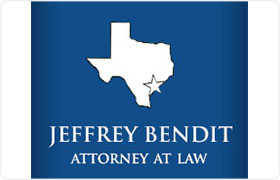 Sugar Land Juvenile Law Lawyers, Texas
Sugar Land Juvenile Law Lawyers, Texas
Sponsored Law Firm
-
 x
x

Click For More Info:
-
Jeffrey Bendit P.C.
434 N. Brooks St. Hwy 36. Brazoria, TX 77422» view mapCriminal Law The Lawyer West of the Brazos
When you need someone to fight for you, we can thoughtfully evaluate your experiences and honestly direct you to the most appropriate course of legal action.
800-833-4190
Lawyers
1-10 of 46 matches
Criminal, Family Law, International Other, Juvenile Law, Domestic Violence & Neglect



 Jeffrey Bendit Brazoria, TX
Jeffrey Bendit Brazoria, TX AboutJeffrey Bendit P.C.
AboutJeffrey Bendit P.C. Practice AreasExpertise
Practice AreasExpertise